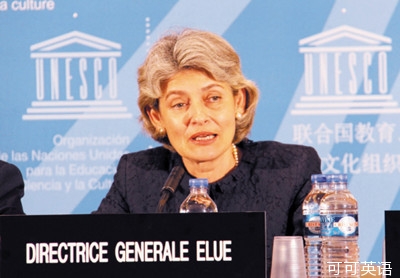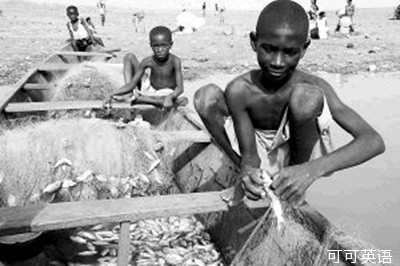Message from Ms Irina Bokova, Director-General of UNESCO, on the Occasion of International Day for the Remembrance of the Slave Trade and its Abolition
聯合國教科文組織總干事伊琳娜·博科娃在販賣黑奴及其廢除國際紀念日的致辭
23 August 2013
2013年8月23日
On 23 August, which marks the anniversary of the slave uprising in Saint Domingue, UNESCO celebrates the International Day for the Remembrance of the Slave Trade and its Abolition.
8月23日是圣多明戈奴隸起義的紀念日,教科文組織開展這一國際日活動是為了銘記奴隸貿易和奴隸貿易的廢除。
Transmission of this history is the cornerstone of UNESCO’s efforts to build peace, intercultural dialogue and mutual understanding. The slave trade reduced millions of human beings to mere chattels and was a crime of universal scope that shook the very foundations of civilization. The significance and implications of this history must be known to all and must be taught in and outside schools, through the media and in the public arena. UNESCO is committed to achieving this through teacher training, support for research and the protection of cultural and documentary heritage.
傳承這段歷史是教科文組織努力建設和平、開展文化間對話和促進相互理解的標志性活動。奴隸貿易使幾百萬人淪為商品:這一全球性的罪行是對人類文明基礎的挑戰(zhàn)。這段歷史的重要性和含義必須讓所有人知曉,必須在學校內外傳授,并通過媒體在公共場所宣傳。教科文組織致力于通過教師培訓、支持研究、保護文化和文獻遺產來開展這項活動。

Under the Slave Route Project, UNESCO aims to reveal the extent and consequences of this human tragedy and to portray the wealth of the cultural traditions that African peoples have forged in the face of adversity – in art, music, dance and culture in its broader sense. This year, on the eve of the twentieth anniversary of the Slave Route Project, I designated as a UNESCO Artist for Peace Mr Marcus Miller, who will undertake the mission of promoting the UNESCO Slave Route Project and conveying its message of respect through music. These endeavours will contribute to efforts for the Decade for People of African Descent (2013-2022), proclaimed by the United Nations in 2012.
教科文組織通過奴隸之路項目,揭示了這一人類悲劇的程度及其后果,也展示了非洲人民在逆境下創(chuàng)造的豐富文化傳統——在藝術、音樂、舞蹈和更寬泛的文化領域。今年,在奴隸之路項目20周年的前夕,我任命了著名的爵士音樂家Marcus Miller先生為教科文組織的和平藝術家,他的使命是通過音樂來宣傳教科文組織的奴隸之路項目,傳遞“尊重”的理念。這項工作也有助于推動聯合國2012年宣布的非洲裔國際十年(2013--2022年)活動。
The slave trade is not merely a thing of the past: it is our history and it has shaped the face of many modern societies, creating indissoluble ties between peoples and continents, and irreversibly transforming the destiny, economy and culture of nations. Studying this history is tantamount to paying tribute to freedom fighters and to acknowledging their unique contributions to the affirmation of universal human rights. They have set an example for us to continue the struggle for freedom, against racial prejudice inherited from the past and against new forms of slavery that subsist to this day and affect some 21 million people.
奴隸貿易不僅僅屬于過去:它是我們的歷史,影響了眾多當今社會的面貌,在各國人民和和各大洲之間建立了牢不可破的聯系,也不可逆轉地改變了各國的命運、經濟和文化。研究這段歷史也是向當年的自由戰(zhàn)士致敬,感謝他們?yōu)闋幦∑毡槿藱嘧鞒龅莫毺刎暙I。他們?yōu)槲覀儤淞⒘税駱樱獮樽杂啥恍傅囟窢帲磳v史遺傳的種族歧視,反對縈繞至今并使2100萬左右的人們依然淪為受害者的各種新形式的奴隸制。
Today, I invite all governments, civil society organizations and public and private partners to redouble their efforts to transmit this history. May it be a source of respect and a universal call for freedom for future generations.
值此國際紀念日,我呼吁各國政府和公私合作伙伴加倍努力,支持紀念這段歷史,使它成為尊重和在全球為后代人爭取自由的源泉。

更多精品翻譯素材,敬請關注可可英語。











